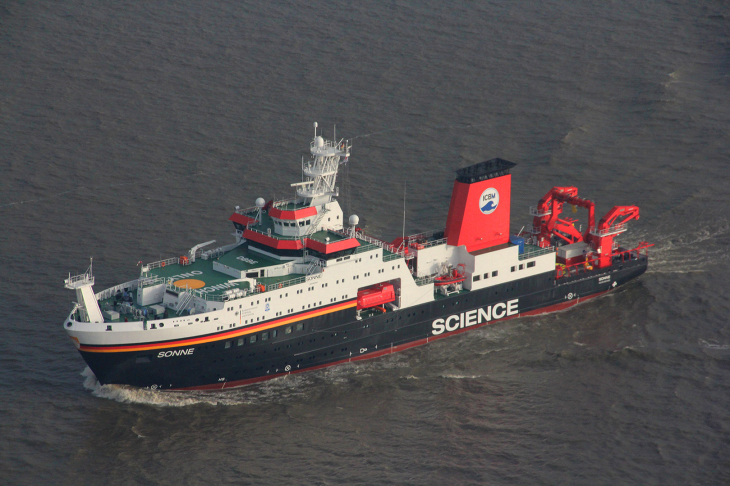How stressed are coastal seas by humans and climate?
The German research vessel SONNE sets off from Singapore for the SO269-SOCLIS cruise to the South China Sea. 24 German and 16 Chinese scientists will investigate, how natural materials and anthropogenic harmful substances are distributed in the shelf area and deeper oceanic regions, which physical processes are responsible for observed pattern, how far the pollution halo of industrial centres and large conurbations reaches into the sea, and how different climate conditions affect the relevant processes. The expedition ends on September 3 in Hong Kong.

How stressed are coastal seas by humans and climate? The research vessel SONNE goes on a month-long hunt for traces in the South China Sea. (Photo: University of Hamburg / J. Peters)
The HZG coastal researcher Dr. Zhiyong Xie takes part in the expedition. He explains: "I am collecting samples of air, seawater and sediment to study air-sea exchange processes and the deposition of new organic substances. I am particularly interested in halogenated flame-retardants and plastic-related chemicals. We want to show the transport routes of these novel organic pollutants via the atmosphere and the sea from the megacities to the South China Sea."
Over the past three decades, China, one of the world’s most densely populated countries, has experienced a massive increase of industrial and agricultural activity in the catchment areas of large river systems, which wash considerable amounts of nutrients, pollutants and other critical substances such as microplastics and pharmaceutical residues into the sea. In particular, rapidly growing megacities, and industrial centres on coasts and river mouths are responsible for this development.
How do the immense population numbers and the continuing rapid industrialisation of these conurbations affect the pollution levels in the respective coastal seas? Can changes caused by this already be detected and is climate change likely to intensify the environmental impact?
These are the central questions of the GermanChinese joint project MEGAPOL (short for “Megacity’s fingerprint in Chinese marginal seas: Investigation of pollutant fingerprints and dispersal”), coordinated by the Leibniz Institute for Baltic Sea Research Warnemünde (IOW), that provides the framework for the ship expedition SO269-SOCLIS (short for “South China Sea – natural laboratory under climatic and anthropogenic stress”).
Kontakt:
Helmholtz-Zentrum Geesthacht
